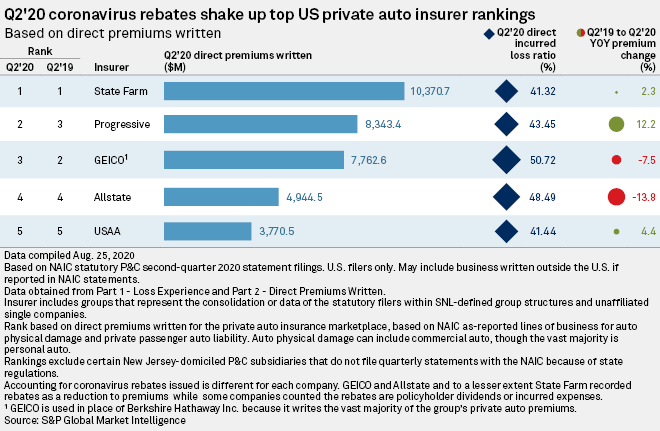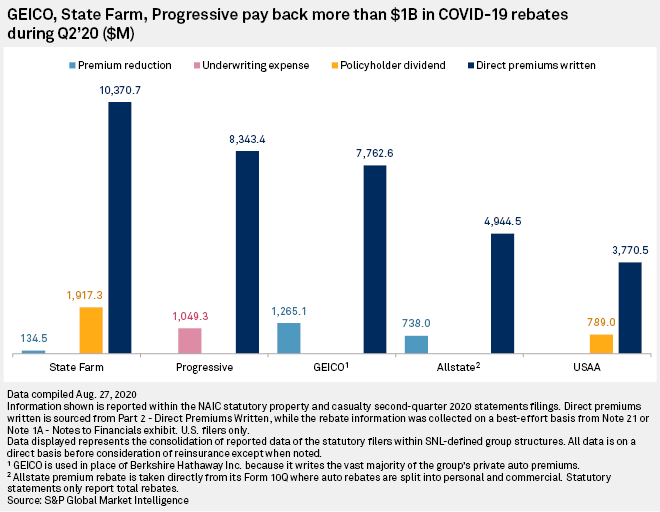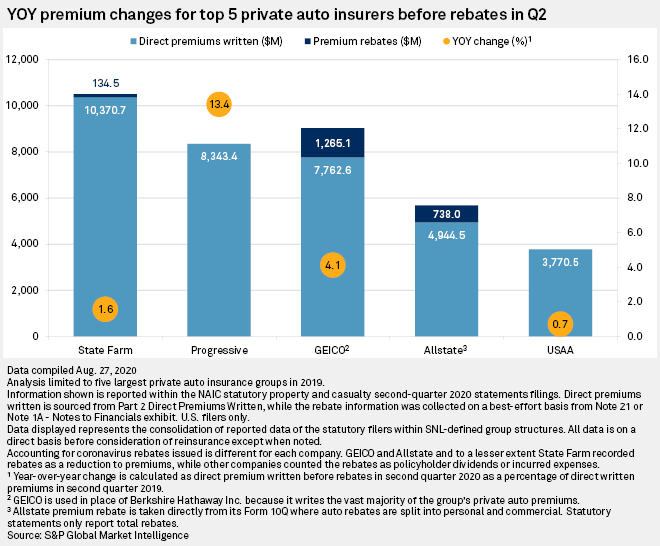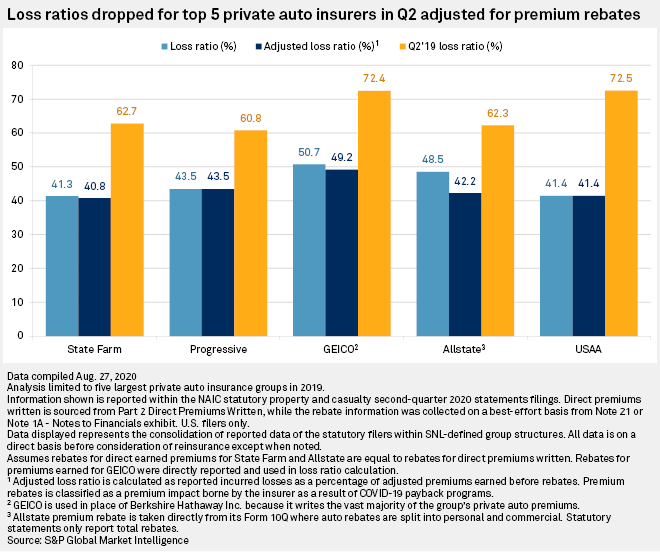Progressive Corp. took over the No. 2 spot in the U.S. private auto insurance marketplace during the second quarter, overtaking, at least for now, rival GEICO Corp. due in part to the way the companies discounted premiums as pandemic lockdowns idled motorists.
Progressive posted double-digit year-over-year growth, while GEICO lost premium, resulting in the two car insurance giants switching places on the table, based on direct premiums written, an S&P Global Market Intelligence analysis shows.
GEICO, a Berkshire Hathaway Inc. subsidiary, reduced premium prices by 15% for new and renewal customers, while Progressive and Allstate Corp. provided temporary premium reductions to policyholders during the quarter. Progressive booked its discount as an underwriting expense; GEICO and Allstate recorded their adjustments as lowered premiums. Marketplace leader State Farm Mutual Automobile Insurance Co. offered premium relief and dividends to policyholders to account for the sharply reduced driving miles resulting from efforts to slow the spread of the coronavirus.

Shrinking losses from still-depressed driving, which is in turn holding down the number of car accidents across the country, have already invited competitive pressure in the auto insurance marketplace, in which temporary and potentially permanent shifts in driving habits will favor the technologically agile. Carriers have continued to benefit from policyholders driving less, said Deloitte consultant Matt Carrier. As that reality finds its way to consumers, they could be drawn to cost-saving policies that charge according to the miles they drive, he said in an interview.
"The larger carriers are trying to accelerate their development of the more sophisticated products like pay-as-you-drive or pay-as-you-go," he said. "Those that can get into the market earlier could have an advantage with some of those products."
Alternatively, they could partner with insurtech companies specializing in that kind of tech-based underwriting, Carrier said.
Root Insurance Co. and Metromile Inc. offer auto insurance pricing according to miles driven.
As driving patterns become more normalized, some customers' employers will likely allow more permanent remote work arrangements, lowering overall risk and luring more insurance customers to policies that charge less for fewer driving miles, Keefe Bruyette & Woods analyst Meyer Shields said.
Additionally, "normal" driving patterns could turn out to be a more elusive underwriting factor than in the past, implying a competitive upper hand in the marketplace to carriers with the analytics platforms to respond quickly, Shields added.
"The normal for August will be very different from the month of May, and that will be different from what December looks like," he said.
Progressive has the tech-enabled platform best suited to respond to unstable pricing conditions, followed by Allstate, Shields said. Hartford Financial Services Group Inc. and Travelers Cos. Inc. lag in that capability among the largest insurers. The real vulnerability from technology-driven industry shifts and from insurtech specialists would be smaller companies that have been slow to adopt analytics-based underwriting, Shields said.
The potential of permanently lowered driving along with developing rate competition will conspire to pressure premium growth into the future, he said.
Deloitte consultants believe overall premiums are likely to decline into 2022. Their analysis weighed the market conditions from three alternative scenarios under which business conditions could rebound ranging from a quick recovery to "no end in sight," according to Carrier.
"I would say now, we're leaning more towards no end in sight in terms of our estimates," he said.






